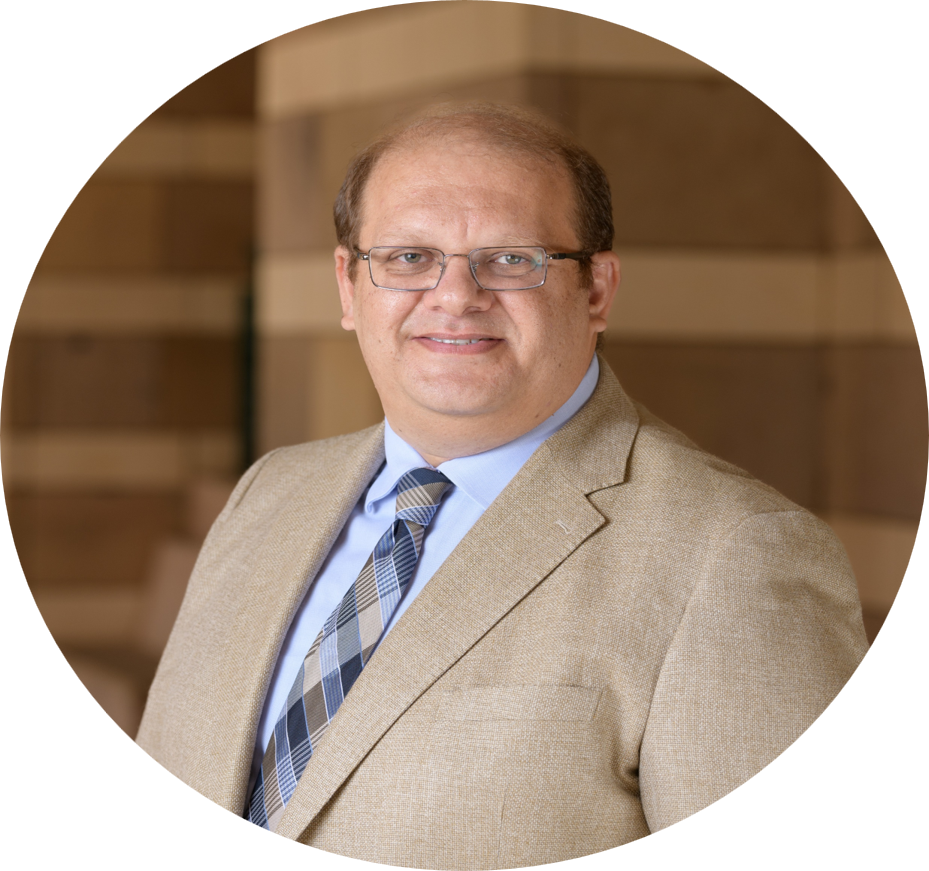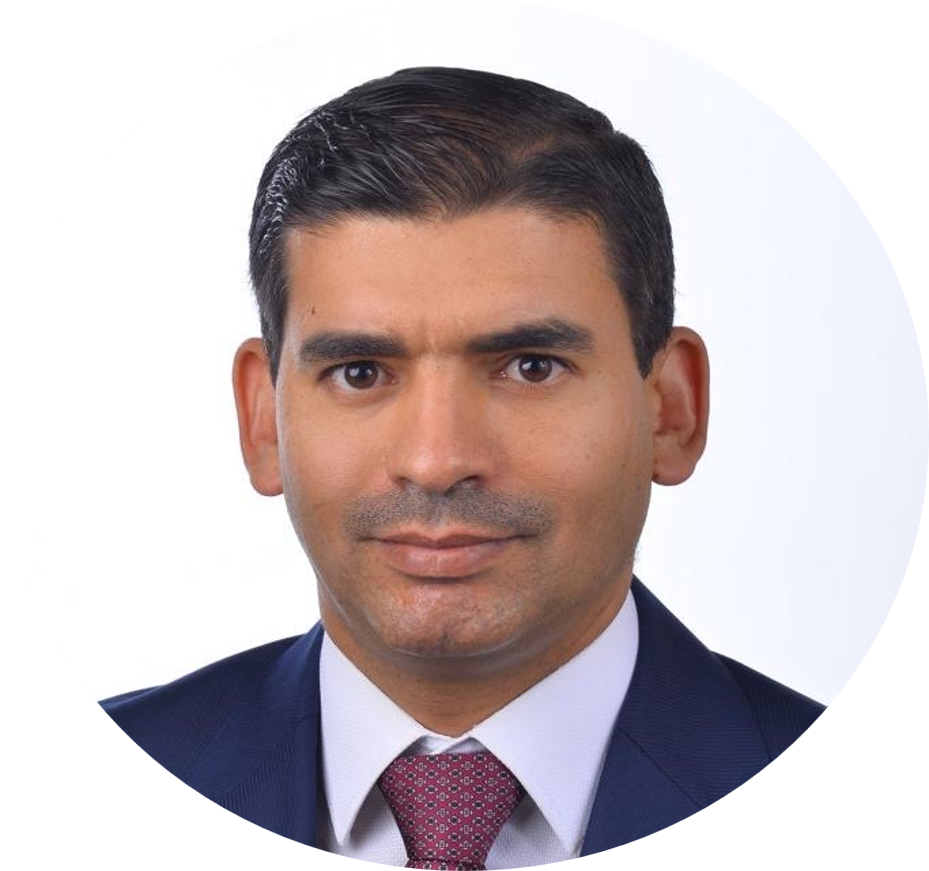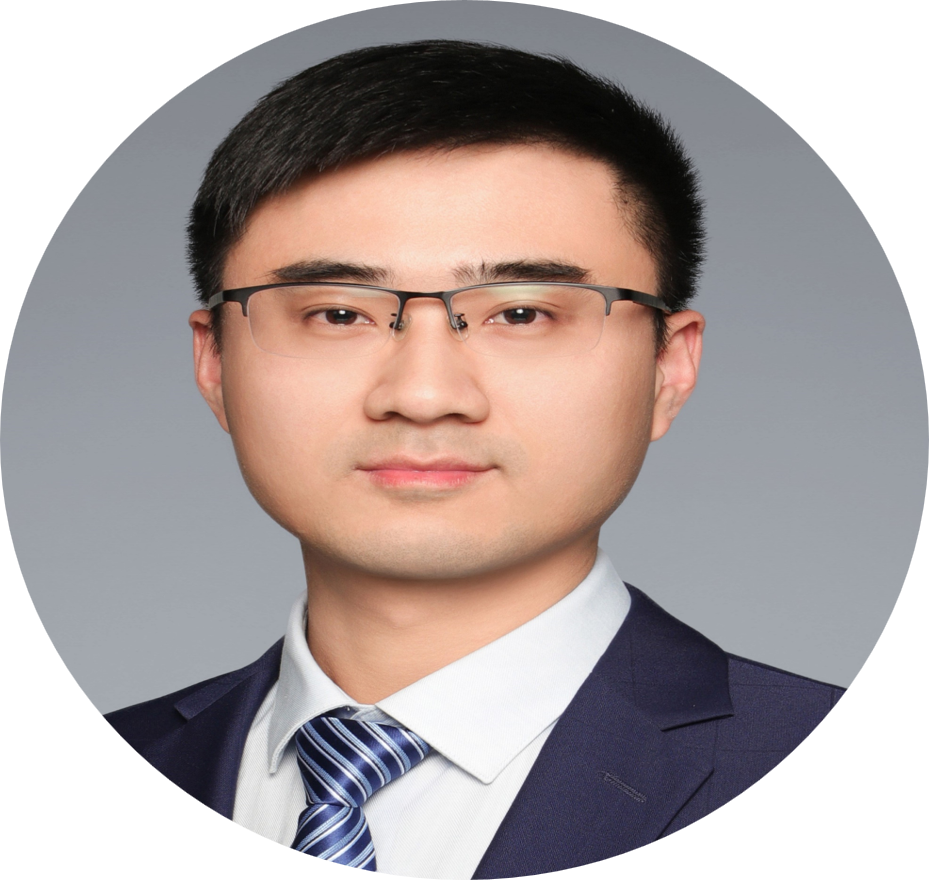Invited Speaker
Mohamed Badran
Biography: Dr. Mohamed Badran received his B.Sc. in Mechanical Engineering with Design and Industrial concentration options and minor in Electronics with High honors and his M.Sc. in Industrial Engineering from The American University in Cairo, Egypt in 2001 and 2003 respectively. He received his Ph.D. degree in Engineering Systems and Computing from the University of Guelph, Canada in 2010. In 2011 and 2012, he was a visiting assistant professor in the Mechanical Engineering Department at The American University in Cairo. He was an assistant professor and acting chair in the Department of Mechanical Engineering at Future University in Egypt, Egypt from 2013-2022. Currently, he is an associate professor in the Department of Mechanical Engineering at The American University in Cairo.
He has received several awards and scholarships such as the Annual Academic Honors for Outstanding Achievement in Mechanical Engineering from the School of Sciences and Engineering at The American University in Cairo from 1998-2000. In addition, he received the Annual University Graduate Scholarship at University of Guelph from 2003-2006. He is a member of several societies such as the American Society of Mechanical Engineers (ASME), the Institute of Electrical and Electronic Engineers (IEEE), the Canadian Micro-Electronics Corporation (CMC), and the Egyptian Engineering Syndicate (EES). He served as a technical committee member for the International Conference on Control, Mechatronics and Automation (ICCMA) from 2019-2024. He has an extensive hand on experience in different microfabrication facilities in Canada such as nanoFAB at the University of Alberta, and Center for Integrated Radio Frequency Engineering at the University of Waterloo. His current research interests are in Automated Guided Vehicles, Modeling of BioMEMS sensors, Micropumps, Rehabilitation, Cardiac Resynchronization Therapy, Electrostatic Precipitators and Operations Research. He has published over 25 refereed publications and 1 book in these fields.Speech Information
Title: TBA
Abstract: TBA

Speaker: Mohamed Badran, Associate Professor
Affiliations: The American University in Cairo, Egypt

Speaker: Mutaz Ryalat, Associate Professor
Affiliations: German Jordanian University, Jordan
Mutaz Ryalat
Biography: Mutaz Ryalat was born in Amman, Jordan. He received the B.Sc degree in Mechatronics Engineering from the University of Jordan, Amman, Jordan, in 2005 and the M.Sc. degree in Mechatronics Engineering from Loughborough University, Loughborough, UK, in 2007, and the Ph.D. degree in Nonlinear and Robust Control from the University of Southampton, Southampton, UK, in 2015. He is currently an Associate Professor in the Mechatronics Engineering Department at the German Jordanian University, Amman, Jordan. His research interests are focused on nonlinear and robust control of mechanical/ electromechanical systems, Hamiltonian systems, Mechatronics system Design, Robotic Systems, and Industry 4.0. & AI. He serves as an active reviewer for a number of journals and conferences in the area of mechatronics engineering.
Speech Information
Abstract: The rapid convergence of mechatronics and advanced technologies such as artificial intelligence, soft robotics, and digital twins is redefining the landscape of automation and robotics. This presentation introduces a novel hybrid adaptive framework that seamlessly integrates intelligent sensing, dynamic actuation, and predictive control systems. By leveraging Industry 4.0 principles and next-generation materials, the innovation addresses critical challenges in industrial automation, medical robotics, and smart cities. The framework’s applications are demonstrated through real-world case studies, including a soft robotic manipulator and smart manufacturing. This transformative approach highlights the potential of mechatronics to drive sustainable, efficient, and intelligent systems across diverse domains.
Yohan Noh
Biography: Yohan Noh received his first B.Sc. degreefrom the Department of Mechanical Engineering, Seoul National University of Scienceand Technology, Korea (2002) and his second B.Sc. degree from the Department ofElectrical Engineering from Yonsei University, Korea (2004). He did his M.Sc. and Ph.D. atthe Department of Science and Engineering (robotics), Waseda University, Tokyo, Japan in2007 and 2011, respectively. After this, he worked as a research associate in Roboticswithin the Department of Biomedical Engineering and Informatics, King's College London.During his PhD and Postdoctoral studies in the UK and Japan, he studied and proposed agreat number of the robotic systems for use in medicine and healthcare in Japan, Korea,and the UK. His work has resulted in more than seventy peer-reviewed papers includingsixteen journal papers and more than seventy papers in top journals and conferences ofrobotics. He has eleven published patents so far.He has been fortunate to have the opportunity of involvement in commercialisationprocess of a number of joint projects between academia and industry. Being ambitious tolay out a research direction which considers commercialisation of the developed system inthe beginning of a project, led to successful commercialisation of the projects and therespective products are now being sold in international market.He has facilitated many collaborative activities between robotics groups in the UK, EU, andJapan through domestic and international joint projects (EU-project STIFF-FLOP, Grant No.287728), (Wellcome Trust IEH project iFIND, Grant No.102431), and (Robotics AdvancedMedical Cluster, Japan), and have been an active member of the robotics community (IEEERAS, EMBS, ASME, RSJ, JSCAS), and helped in the organisation of RSJ, ROMANSY, ICCAS,ROBIO, ICRA, and EMBC conferences since 2008.
Speech Information
Title: The development of various types of sensors based on light intensity modulation using electro-optical sensing units for robot applications and medical devices
Abstract: The aim of my research is to develop various types of sensors (which are used for measuring one of the physical quantities) based on light intensity modulation using electro-optical sensing units for robot applications and medical devices. The light intensity modulation using electro-optical sensors, so called optoelectronic sensors, has been implemented into sensing applications such as distance measurement and object detection. To measure a distance, an optoelectronic sensor (consisting of an LED and photo-transistor) and a reflector are utilised. The light emitted from the LED is reflected by the reflector, and it is transmitted to the photo-transistor which can convert light intensities into voltage variations. From this light intensity sensing principle, force/torque, joint angle, shape, proximity sensing, etc. can be measured. The usage of optoelectronic sensors presents the advantages of immunity to electrical noise, low power consumption, and relatively low cost. Besides, it guarantees low-level noise without any electronic filtering, and also guarantees the highest update rates (more than 10kHz). In addition, cutting edge technology allows optoelectronic sensors to be miniaturised, and recent advances have produced diminutive sized optoelectronic sensors (1.0mm x 1.5mm x 0.6mm), so they can be embedded into many robot applications and medical devices to measure physical quantities such as force/torque, tactile, shape, joint angle, distance sensing, etc. In this presentation, I would like to introduce different types of the sensors I have developed so far, and how I have integrated them into robot arms, surgical flexible manipulators, and airway management training systems.

Speaker: Yohan Noh, Lecturer
Affiliations: Brunel University London, UK

Speaker: Chunxu Tian, Associate Researcher
Affiliations: Fudan University, China
Chunxu Tian
Biography: Chunxu Tian is an Associate Researcher at the Academy for Engineering & Technology at Fudan University. His work focuses on advanced robotics, with research areas including general-purpose humanoid robots, the development and application of dexterous hands, and multi-functional drone technology. He has made significant contributions to the field, leading multiple national projects. Tian's innovative work addresses critical challenges in robotics, particularly in overcoming the inherent limitations of traditional parallel robots. His research has resolved key conflicts and incompatibilities between various performance aspects of robots, pushing the boundaries from conventional "weak coupling" designs towards "strong coupling," and from "fixed configuration" systems to more adaptive "variable configuration" models. Tian's contributions have been driving forward the development of more versatile and capable parallel robotic systems.
Speech Information
Abstract: Robotics is undergoing a transformative shift, driven by the need for systems that are more versatile, adaptive, and high-performing. This presentation explores breakthroughs in advanced robotics research, focusing on general-purpose humanoid robots, dexterous robotic hands, and multi-functional drones. A core emphasis is placed on overcoming the limitations of traditional parallel robots, particularly resolving the inherent conflicts between performance parameters. By transitioning from "weak coupling" to "strong coupling" designs and from "fixed configuration" systems to adaptive "variable configuration" models, this research has set new benchmarks for robotic capability. The talk will highlight key innovations and practical applications, illustrating how these advancements are pushing the boundaries of robotic performance and functionality, paving the way for next-generation robotic systems.
